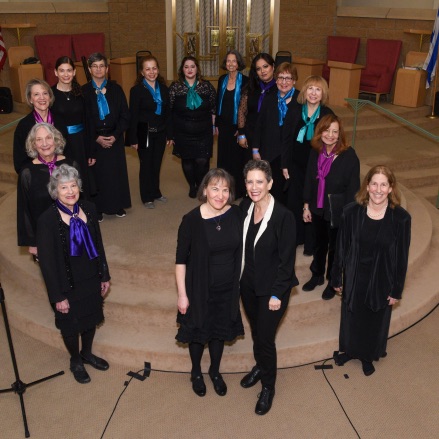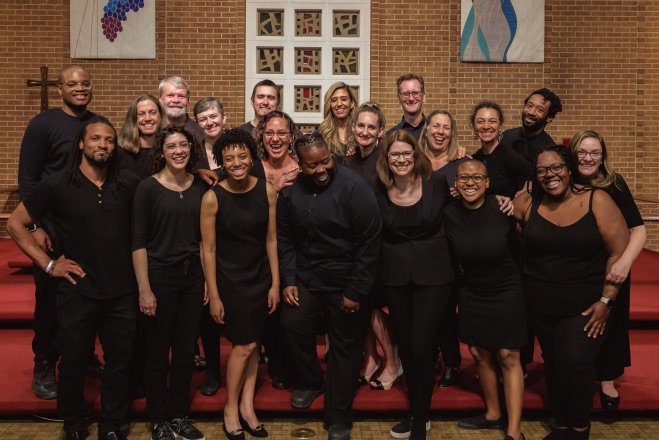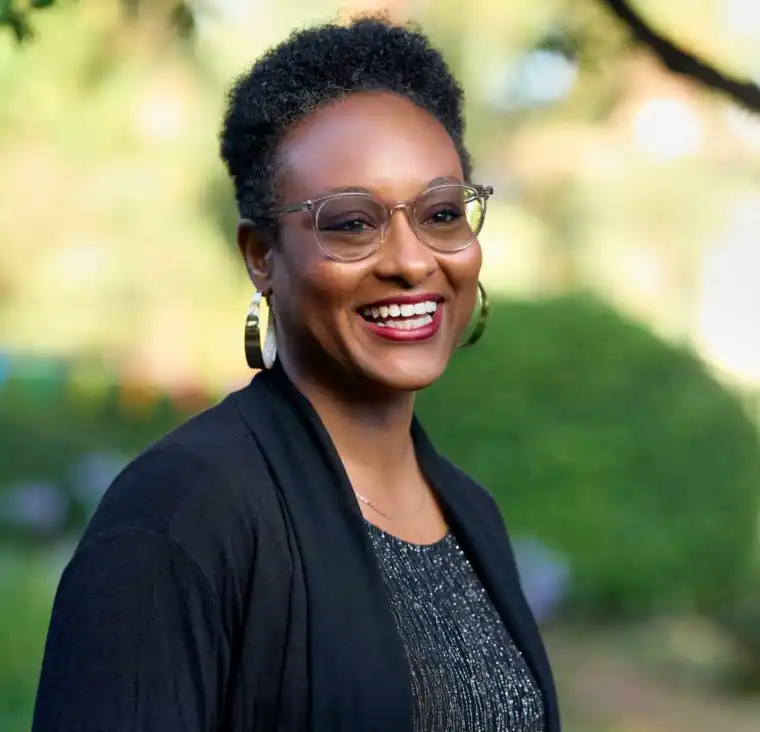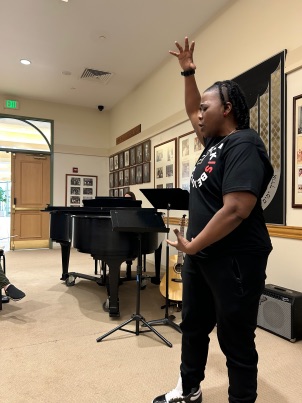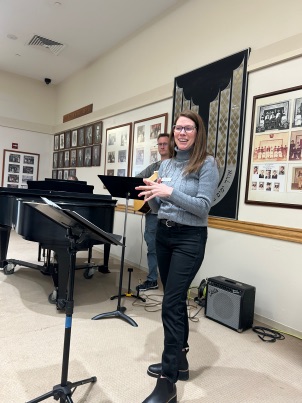Common Ground Through Music
Preview by Betsy Schwarm
In an increasingly contentious world, there is comfort in hearing of attempts to build bridges – not just from one side toward the other, but from both sides toward the middle. Considering the symbology of raising one’s voices together, choral music may be an ideal medium for such a partnership.
For two performances this spring, two otherwise rather different choral groups will join forces for a pair of public concerts. It’s the culmination of their two-year project on the theme “If Not Now When: Conversations about Race and Religion.” One chorus is Kol Nashim, the Denver-based women’s choir partner of the Colorado Hebrew Chorale. The other is the Unity Project of Colorado Springs, which describes itself as “a collective of humans seeking to dismantle individual and systemic biases through education, service and singing.”
Unity Project’s repertoire tends to be largely Christian in nature. By contrast, Kol Nashim’s repertoire is rooted in Judaism, as well as women’s issues. One might suppose that deeply held religious views would keep the choirs asunder. However, as Leah Peer, founder and director of Kol Nashim observes, “There is a lot of discussion in general society now, and particularly in arts organizations, about the whole issue of diversity, equity and inclusion…. It’s about finding common ground.”
Kim Schultz and Victoria Lipscomb, co-directors of the Unity Project agree. They emphasize that part of Unity’s mission is to promote “a more inclusive understanding of musical expression,” in hopes of effecting “meaningful change within the wider arts community.”
That search for ‘common ground’ and ‘wider community’ determined repertoire for the concerts to be given May 19 in Denver and June 2 in Colorado Springs. Each choir will have a portion of the program for its own repertoire, often including works that mean something special to the singers. Kol Nashim will focus particularly on works that its founder and director, Leah Peer, commissioned for the ensemble. As she’ll be retiring at the end of this season, she particularly wanted to bring out these works before the public one more time.
Unity Project’s set includes five pieces: four of them written by women, two of those women of color. One work is an arrangement by current Black American composer Zanaida Stewart Robles of a Medieval chant attributed to Hildegard von Bingen. Co-director Victoria Lipscomb expresses a hope that the full set will “both delight and challenge the ears,” as well as inviting listeners to appreciate the dream of “an anti-racist society.”
The choirs will also perform jointly, even from the first moments of the program. Both concerts open with One Voice, by Ruth Moody of the Wailin’ Jennys. The work begins with a single voice. Gradually, more and more voices join: one becomes two, then three, ultimately many “singing together in harmony,” as the sung text observes. Both aurally and visually, it establishes from the outset that these two choruses can raise their voices as a single entity.
Another collaborative selection is “There Must Be Another Way“, by composers Achinoam Nini, Mira Awad, and Gil Dor. This arrangement is by Joshua Jacobson Imagined as an anthem for peace and understanding, the piece sets a text in Hebrew, Arabic, and English. Originally, it called for two soloists, though this arrangement sets the solo parts for two-part SA chorus. That portion of the music, containing most of the non-English text, will be performed by Kol Nashim. Supporting textures are given to SATB chorus; in this case, that’s Unity Project.
Other joint selections bring the challenge not of language but of technique. In One Day, the Matisyahu text was inspired specifically by the Israeli/Arab conflict. However, as Kol Nashim’s Leah Peer observes, “the text fits any context where violence prevents conversation.” Moreover, given the stylistic touch of a Reggae beat, it does not attempt to sound specifically Jewish, or even Middle Eastern. Multiple flavors are combined into a single creation, as can be the case with a fine recipe, or as one might wish for the world.
For the finale, the music will be David Frazier’s I Need You to Survive, also combining the two choruses. The structure is call-and-response: integral to Unity Project’s repertoire, though quite new to Kol Nashim. Text changes were made, so it would be, as Kol Nashim’s Peer observes, “more comfortable to a Jewish choir.” Throughout rehearsal time, Unity Project co-director Victoria Lipscomb coached Kol Nashim in managing the call-and-response technique, and at the concerts, will also coach the audience. Consider yourself forewarned: “if you attend, we will ask you to join us in song!”
Given that the two choirs are based in different Front Range cities (Denver and Colorado Springs), the two performances will also be given in those two cities. The first performance will be Sunday, May 19, at 6pm, at the Hebrew Educational Alliance (HEA), 3600 South Ivanhoe Street, Denver 80237.
The Colorado Springs performance follows two weeks later:
Sunday, June 2 at 6pm at Community Works, 1652 S Circle Dr, Colorado Springs 80910.
For the Denver performance, livestream tickets will also be available. The concert will be followed by a reception sponsored by the Hebrew Educational Alliance, and proceeds will benefit the Jerusalem Shelter for Battered Woman.
Further information about the performance is available at the websites of the two choirs:
Kol Nashim: https://coloradohebrewchorale.org/about-us/kol-nashim/
Unity Project: https://www.unityproject-cs.org/
The ticket link for the Denver performance is https://tickets.chorusconnection.com/cohebcho/events/943.
For the Colorado Springs performance, the ticket link will be posted in the weeks ahead. However, on the Unity Project website, one will already find a Contact page where one can ask for details as they become available.
Can music bring the world together and calm the chaos that dominates the news? Kim Schultz and Victoria Lipscomb, co-directors of the Unity Project, have hope. As they observe, “Music acts as a bridge, facilitating the lowering of our guards and biases, yet it is something much more profound that truly unites us… Our dedication extends beyond music; we are deeply invested in advocating for equity within our society. Unity Project holds the conviction that the journey towards equity is not only healing and enlightening but also crucial for addressing and illuminating the various forms of injustice that persist”.
In bringing Unity Project and Kol Nashim to work together, the If Not Now When concerts can represent that search for equity and a common ground, not only for the singers, but also for their audiences. Perhaps not the entire world, but even on a local scale

